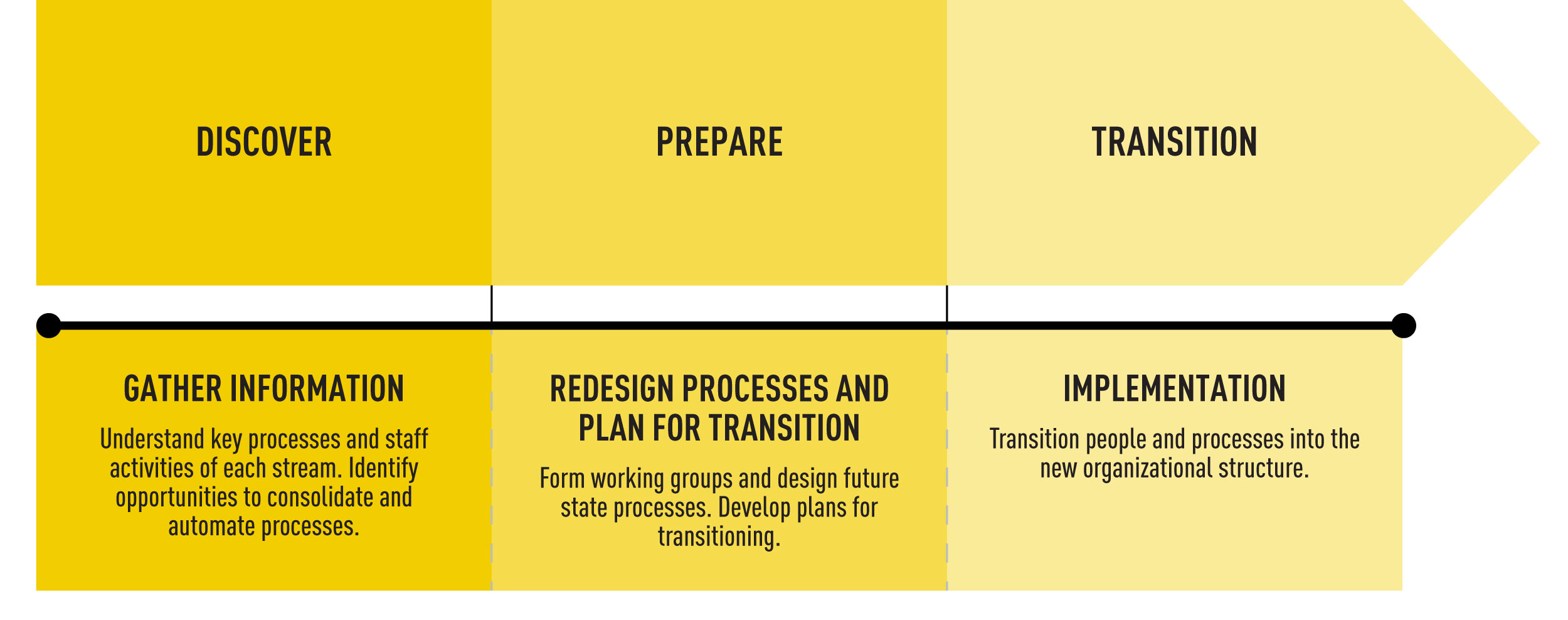Discovery update: Research administration
17 June 2021
Since our last discovery update, the SET team has made significant progress advancing the functional reviews of the six workstreams in order to transition to the new operating model. A functional review is a methodology on how we can shift from our current state into our new operating model, and consists of three phases as demonstrated in the diagram below.

Recently, the research administration workstream concluded its discovery phase, engaging with functional experts and leaders to gain a better understanding of the current state of research administration processes across the university. The information gathered will eventually inform the roles and responsibilities of the research partners, identify processes that can be streamlined or transferred to Shared Services, and aid the design of the new structure for the Vice-President, Research and Innovation (VPRI) portfolio. A few key highlights from the discovery results include:
- A total of 266 distinct processes within faculties/departments/units were identified; this does not include the processes within VPRI.
- Researchers want to focus on their projects instead of spending time on administrative work.
- Transformation in the HR and finance streams have unintended influence on research administration processes as research activities rely heavily on these functions. Hence, collaboration between the research administration, finance, and HR streams is key.
- There is a necessity to establish a strong university-wide research and service-oriented culture focused on researchers' needs.
Walter Dixon, executive co-sponsor for the research administration workstream and Interim Vice-President, Research and Innovation, presents the preliminary findings and identified priorities in the following video.
Consultation and engagement
Throughout the discovery process, the research administration stream practiced SET’s principles of encouraging a transparent consultation process and fostered open and inclusive university engagement. Faculty and staff from across the university were engaged in a variety of activities including workbook development and completion, validation of discovery data, review of findings, and more. A total of 89 discovery workbooks were collected from staff in faculties, departments, and units across the university and the team hosted 14 consultation/Q&A sessions providing an open forum for faculty and staff to ask questions and provide input. Among the 12 focus group sessions held, 60 percent of participants were researchers, which helped the team feel confident that researchers—who will be directly affected by the transition—had a strong voice in identifying the changes they want to see implemented.
What’s next?
The team is currently working on mapping both the internal VPRI processes as well as the university-wide processes that arose during the discovery phase to assess how work can be streamlined across research administration. This significant step will inform many upcoming decisions, such as the service delivery framework for the partners network and the review of the structure of the VPRI portfolio. One key area of focus is to ensure that the research service delivery framework aligns with the new operating model and provides greater efficiencies. In addition, the stream will begin process redesigns of the identified priorities, in which a call for workgroup and feedback group participants will be issued.
It’s important to recognize that each functional workstream is moving at its own pace through its own discoveries and processes, and therefore, each will reach milestones at different times. Stay tuned for updates as more functional workstreams complete their discovery phase.
For more information including updates and progress within the research administration workstream, visit their dedicated web page.